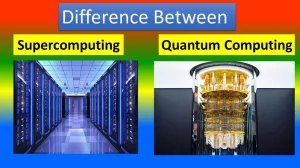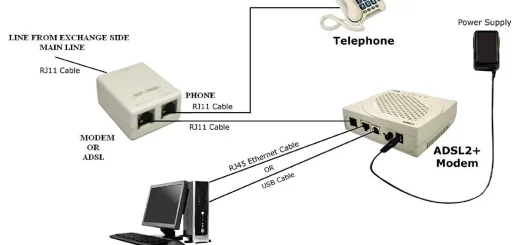Difference between biocomputers and quantum computers
Biocomputers and quantum computers represent two futuristic approaches to computing, each aiming to harness unconventional systems to solve complex problems more efficiently than classical computers. While they are different in design and applications, both offer exciting possibilities for advancing computing beyond traditional silicon-based architectures.
Biocomputers vs quantum computers
Biocomputers offer bio-friendly, low-energy solutions that are limited by current instability and control issues, while quantum computers promise unprecedented computing power but are constrained by technical and operational challenges. Both fields are advancing, albeit slowly, toward specific high-impact applications that could redefine computing in specific domains.
Biocomputers use biological molecules, such as DNA, proteins, and enzymes, as their core components rather than traditional electronic circuits, This form of computation is inspired by the processes that occur in living organisms. A few points about biocomputers are:
- Biocomputers operate on biological processes to carry out computations. For instance, DNA computing relies on the ability of DNA strands to self-assemble and undergo molecular reactions that represent data processing steps.
- Like living cells, biocomputers excel in parallel processing due to the vast number of biochemical interactions that can occur simultaneously. This makes them well-suited for solving complex combinatorial problems.
- Biocomputers are in their infancy but hold promise for applications in synthetic biology, bioengineering, and healthcare. For instance, they could be used for disease detection, biosensing, drug development, or designing programmable cells to respond to disease markers.
- Current biocomputers are limited in speed, stability, and precision compared to electronic computers. Environmental factors can easily disrupt biological reactions, making biocomputers difficult to control.
Quantum Computers
Quantum computers leverage principles of quantum mechanics, such as superposition and entanglement, to perform computations that would be infeasible for classical computers. Quantum computing has rapidly advanced and now attracts significant attention due to its potential for breakthroughs in various fields.
- Qubits: The quantum equivalent of classical bits, qubits can exist in multiple states simultaneously (superposition) and be entangled with one another, allowing quantum computers to process vast amounts of information in parallel.
- Quantum computers use quantum gates to manipulate qubits. These gates follow quantum rules, enabling computations that classical logic gates cannot perform, which opens new possibilities in problem-solving.
- Quantum computing promises cryptography, optimization, artificial intelligence, drug discovery, and more advancements. For example, they could solve complex optimization problems or simulate quantum-level interactions in molecules, which are difficult for classical computers to handle.
- Quantum computing faces issues of qubit coherence (maintaining quantum states), error correction, and high costs. Quantum systems are also highly sensitive to external disturbances, requiring very low temperatures and highly controlled environments to function.
Biocomputers advantages
- Biocomputers can perform a vast number of reactions simultaneously, making them ideal for solving complex, highly parallel problems like combinatorial optimization.
- Since biocomputers operate through biochemical reactions rather than electric currents, they require minimal energy, making them highly energy-efficient compared to classical computers.
- The molecular nature of biocomputers means they can perform computations at microscopic scales, opening doors for nano-level applications such as cellular diagnostics and targeted drug delivery.
- Since they use biological molecules, biocomputers can directly interface with living cells and tissues, making them suitable for biomedical applications like biosensing and targeted therapeutics.
Disadvantages of Biocomputers
- Current biocomputers are slower than electronic computers because biochemical reactions occur more slowly than electronic signals.
- Biological molecules are sensitive to environmental factors like temperature, pH, and chemical contaminants, which can easily disrupt computations.
- Many biocomputers can only be used for one calculation or a limited number before they degrade, making them impractical for many types of continuous computation.
- The biochemical processes that biocomputers rely on can be hard to control precisely, resulting in high variability and less reliability than traditional computing systems.
Quantum Computers advantages
Quantum computers can process certain types of problems (e.g., factorization, optimization, and quantum simulations) exponentially faster than classical computers due to quantum superposition and entanglement.
Quantum computers can explore multiple potential solutions at once, making them highly effective at solving complex problems, like drug discovery and materials science, where classical computing would be slow or even impractical.
Quantum computers can break traditional cryptographic methods (like RSA), leading to the development of new, more secure encryption methods in response.
Simulation of Quantum Systems: They are uniquely suited for simulating quantum phenomena in chemistry and physics, which classical computers struggle to model accurately.
Disadvantages of Quantum Computers
- Quantum states are extremely delicate and can be disrupted by slight environmental changes, leading to decoherence, where information is lost from qubits. Maintaining coherence over long periods is a significant technical challenge.
- Quantum computers require extremely controlled environments, often near absolute zero temperatures, leading to high costs for cooling and infrastructure.
- Quantum computing is still in its early stages, with only small numbers of qubits currently usable for computation. Scaling up to achieve meaningful real-world applications remains a major hurdle.
- Quantum computers need complex error-correcting algorithms to maintain reliable results, which requires additional qubits and computational resources, adding complexity to their design and operation.
You can subscribe to Science Online on YouTube from this link: Science Online
You can download Science Online application on Google Play from this link: Science online Apps on Google Play
Importance and uses of computer technology in pharmacy
Computers in Medicine uses, advantages and disadvantages
Harmful health effects of the computer on the human body
Importance of Biological computer mechanisms and could we make biological computers?




